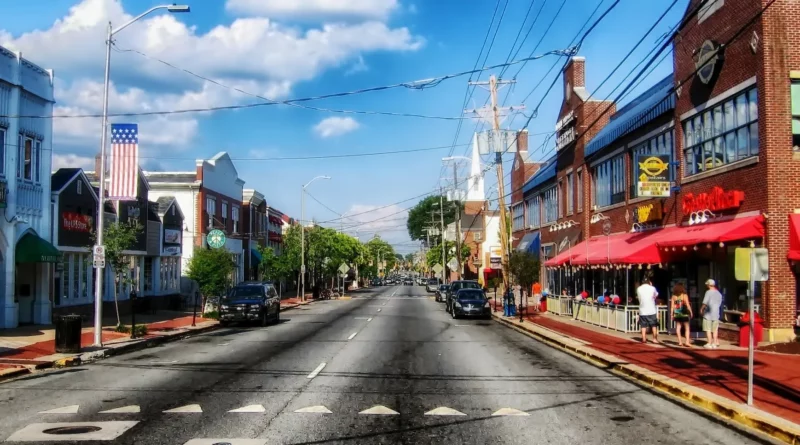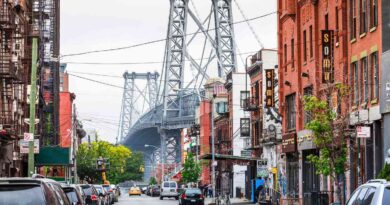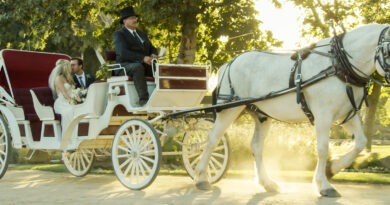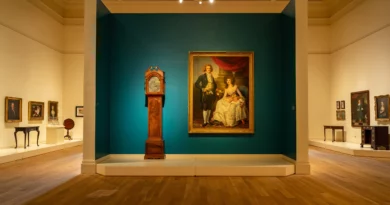History Of Newark Delaware
Newark, Delaware is a small city located in the northern part of the state and has a rich history that dates back to the colonial times. It is believed that the area was originally inhabited by Native American tribes such as the Lenape and Susquehannock. The arrival of European settlers in the 1600s marked the beginning of the city’s transformation into a bustling center of commerce and trade.
In 1694, a land grant was granted to a group of English settlers, and they established the town of Newark, named after Newark-on-Trent in England. The town quickly became an important center for agriculture and trade, and by the early 1700s, it had become a thriving community. In 1758, the town was incorporated, and it soon became an important center for the production of iron, wool, and wheat.
During the American Revolution, Newark played a significant role in the fight for independence. The town was occupied by British troops, and it became a center of military activity. Many of the buildings in Newark were used as barracks, hospitals, and storage facilities, and the town was a major supplier of food and supplies to the Continental Army.
After the Revolution, Newark continued to grow and prosper. In 1833, the Delaware College (now the University of Delaware) was established, which further solidified the city’s importance. The college became a center of learning and cultural activities, and it helped to attract new residents and businesses to the area.
In the late 1800s and early 1900s, Newark saw a period of tremendous growth and expansion. The city became a hub of commerce, with the establishment of banks, department stores, and other businesses. The population grew rapidly, and the city underwent a period of rapid urbanization, with the construction of new homes, schools, and other public facilities.
During the 20th century, Newark continued to thrive and grow. The city became a center of industry, with the establishment of many manufacturing plants, and it was home to a thriving working-class population. In the mid-1900s, Newark was also a center of political activity, with the Civil Rights Movement and the anti-war protests of the 1960s and 1970s.
Today, Newark is a thriving city that is home to a diverse and growing population. The University of Delaware remains an important part of the city, and it continues to play a central role in the city’s cultural and educational life. The city is also home to many parks and green spaces, which provide residents with opportunities for outdoor recreation and relaxation.
In recent years, Newark has become known for its thriving arts and culture scene. The city is home to many museums, galleries, and theaters, as well as a vibrant music and dance scene. Each year, the city hosts a number of cultural festivals and events, including the Newark Arts Festival, the Newark Food & Brew Festival, and the Newark Community Days.
The city is also home to a number of historical landmarks, including the Old College Gallery, which was built in 1743 and is one of the oldest buildings in Newark. The First Presbyterian Church, built in 1756, is another important landmark that is considered one of the finest examples of colonial architecture in the state. The White Clay Creek State Park, located just outside of Newark, is a popular destination for outdoor enthusiasts and offers miles of trails for hiking, biking, and horseback riding.
Another important aspect of Newark’s history is its connection to the transportation industry. The city was once a major hub for the Pennsylvania Railroad, and it remains an important transportation center today, with the Newark Train Station providing access to the Amtrak and SEPTA rail systems. The city is also located just a few miles from the Philadelphia International Airport, making it an ideal location for those who travel frequently.
Finally, Newark is known for its strong sense of community and its commitment to preserving its history and heritage. The city is home to many local organizations, such as the Newark Historical Society, that work to preserve the city’s rich cultural heritage and promote a sense of community pride. These organizations host a variety of events throughout the year, including history walks, museum exhibitions, and community festivals.
Newark, Delaware is a city with a rich and diverse history that has played a central role in the development of the state and the country as a whole. From its origins as a small agricultural community, to its growth and expansion as a center of commerce and industry, Newark remains a vibrant and thriving city that is proud of its heritage and committed to preserving its history for future generations. Whether you’re interested in exploring the city’s cultural and historical landmarks, experiencing its thriving arts and culture scene, or simply enjoying the great outdoors, Newark has something for everyone.
Discover more from City Towner
Subscribe to get the latest posts sent to your email.




